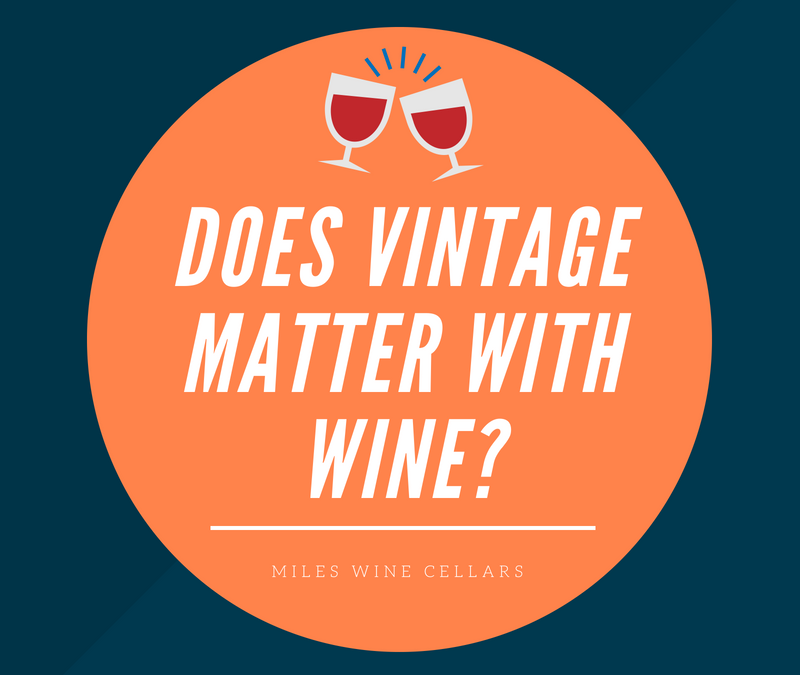Wines! The life of parties, dinners, occasions, events and social gatherings; such precious things they are. A subject that will remain a constant topic amongst winemakers, wine enthusiasts, advocates, spectators columnists, and critics is the relationship between the sentiments attached to wines; their tastes, and quality, alcoholic content, etcetera, and the vintage of these wines. Emanating from this are various questions such as does vintage determine wine taste, or alcoholic content, are wines from certain times of more quality than others of a different timeline? These are all great questions, but in the end, the question that should hold the most weight out of all the above-asked questions is “Does vintage even matter at all with wine?”. Is there even a relationship between vintage and wines to begin with?
Before delving further into the question of whether or not vintage matters with wine, it is vital to fully understand what the term “VINTAGE” really connotes in this context. Contrary to popular belief that the term “vintage” refers to the lifespan of wine, which is, how long wine has aged, it refers to the year in which the grapes were grown and harvested. The contrast in the populist definition and the actual definition is quite amazing right?! A wine’s vintage is assumed to be significant because the climate of a given year affects the quality of the harvest. It is of popular belief that ripe grapes make better wines.
To a great extent, after due diligent consideration of statistical facts and figures concerning this subject, it is safe to assume that the significance attributed to the vintage of wine is relative from place to place, and there are dissenting opinions all around about whether it matters or not. A school of thought believes that vintage does matter with wine, another school of thought believes it doesn’t. With these two dissenting views, it is best to sit on the fence for this one while considering the two school of thoughts and the various arguments that drive them.
Why Vintage Matters With Wine
An argument that holds water is the fact that although the vintage of wine might or might not affect its quality, it tasting better or worse is definitely in question; it produces noticeable differences in certain cases. Cases that relate to climate are great examples. Some winemakers do not do anything to manipulate their wine, however, choosing for their products to reflect the given vintage is a thing. If the weather was cooler, in a given year, a conscious choice could be made by the manufacturers to reduce the alcohol content. In this case, the low alcoholic content can be attributed to this vintage.
When wine collectors purchase wines, vintage matters. A major argument for them is that good vintage produce grapes that are well ripened. A wine’s vintage can greatly affect the taste primarily because of the weather that affects the vines throughout the growing season. Essentially, the defining feature of a vintage is sunshine. Sunny days give grapes the best chance of reaching full maturity and optimum ripeness levels. If a region gives too much rain and clouds, grapes do not fully ripen, may be more prone to rot and disease, and tend to deliver low-quality grapes. As stated earlier, this topic is a topic with lots of dissenting opinions. The fact that it was a good vintage in one region doesn’t guarantee that it will be in another. Also great vintage for red wines may not be as good for white wines from the same region. In addition, the context of how you are planning on consuming the wine is important. Is it for tonight’s dinner or to the cellar for a rest? Vintage matters when you don’t know the specific wine. With all that’s been stated above, it’s of no doubt that vintage does matter with wine. Why the dissenting views? The next subtopic gives an insight into that.
Why Vintage Doesn’t Matter With Wine
A study conducted by a University of Chicago professor Roman Weil that asked 270 wine tasters to try a selection of bottles that wouldn’t break the bank can be called upon here. After obtaining conclusive results, it was observed that the tasters couldn’t distinguish between highly and poorly regarded vintages. Nor did they noticeably prefer good vintages over bad ones. The only exception in this study was for Bordeaux, a wine for which tasters expressed a preference for esteemed vintages (further evidence on the relativity of the subject matter).
Regions with consistent, sunny, grape-growing conditions show the least amount of vintage variation year in and year out. Wines from warm weather regions including Central Spain, Portugal, Argentina, Australia, California and Southern Italy, tend to produce more consistent style year in and out and its vintage matters less in this instance. In the Finger Lakes region, vintage matters more. There are years with more rain and less sun which produce a different climate for grape growing.
Also with commercial producers, wines are made by the numbers. Levels of alcohol, pH, acidity, residual sugar, among other specs are carefully managed/manipulated to minimize vintage variation as much as possible. Wines from larger producers are generally consistent year after year.
Conclusion
Considerable debate swirls as to who exerts more influence over a given bottle of wine. Is it the vintage or the vintner? In the days gone by, wines were at the ruthless mercy of mother nature. However, in today’s tech-driven cellars, the winemaker has plenty of trendy tools available to combat and compensate for less than stellar weather cycles. Wine vintages may or may be nothing more than guidelines, which may or may not indicate the quality of a bottle. Even in a poor vintage, you might find excellent bottles. Especially for drinkables bottles around the 20 dollars price point as opposed to higher priced bottles that may be meant for collections. The quality of the wine can be a reflection of the winemaker more than a reflection of the weather. Ultimately, whether vintage matters is up to you.

